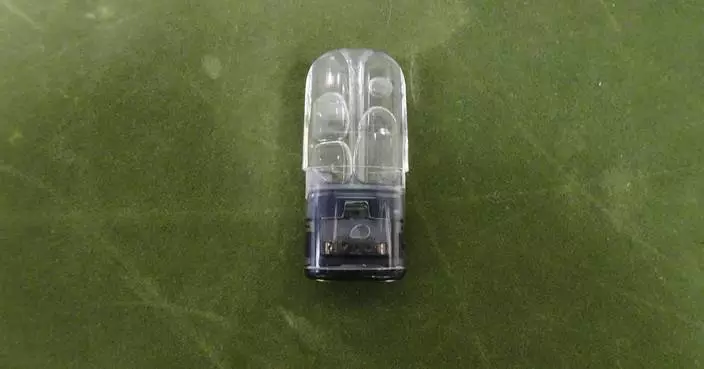Update on cases of Legionnaires' disease
The Centre for Health Protection (CHP) of the Department of Health today (September 16) reported the latest number of cases of Legionnaires' disease (LD), and stressed the importance of using and maintaining properly designed man-made water systems, adding that susceptible groups should strictly observe relevant precautions.
From September 8 to 14, the CHP recorded three community-acquired LD cases:
"Epidemiological investigations are ongoing to identify potential sources of infection, high-risk exposure and clusters, if any," a spokesman for the CHP said.
As of September 14, 81 LD cases had been recorded this year. In 2023 and 2022, there were 121 and 80 cases respectively.
"Men, people aged over 50, smokers, alcoholics and persons with weakened immunity are more susceptible to LD. Some situations may also increase the risk of infection, including poor maintenance of water systems; living in areas with old water systems, cooling towers or fountains; using electric water heaters, whirlpools and spas or hot water spring spas; and recent stays in hotels or vessels," the spokesman said.
Legionellae are found in various environmental settings and grow well in warm water (20 to 45 degrees Celsius). They can be found in aqueous environments such as water tanks, hot and cold water systems, cooling towers, whirlpools and spas, water fountains and home apparatus that support breathing. People may become infected when they breathe in contaminated droplets (aerosols) and mist generated by artificial water systems, or when handling garden soil, compost and potting mixes.
Immunocompromised persons should:
The public should observe the health advice below:
The public may visit the CHP'sLD page, theCode of Practice for Prevention of LDand theHousekeeping Guidelines for Cold and Hot Water Systems for Building Managementof the Prevention of LD Committee, and the CHP'srisk-based strategyfor prevention and control of LD.

Source: AI-generated images
EPD completes investigation on T·PARK's stack gas monitoring incident
Concerning the incident regarding the suspected short-term non-compliance of the total organic carbon (TOC) from certain T·PARK's flue stacks during the period from last October to this July, as compared with the emission standards set out in the contract, the Environmental Protection Department (EPD) today (December 30) announced the investigation findings.
The investigation revealed that, at the same time when the monitoring data of TOC collected from the operating flue stack exceeded the emission limits set out in the contract, TOC was also detected from the air inside the other non-operating flue stacks in the facility. Since the monitoring of organic carbon requires utilization of air from the surrounding environment in order to assist combustion, scientifically the monitoring data need to be corrected according to the organic carbon concentration in the ambient air before they can be compared with the standards. With the above correction, it is confirmed that the actual data of TOC from the operation of T·PARK had not exceeded the emission limit under the contract.
TOC generally refers to the total amount of carbon in all organic compounds. Vegetation, vehicles, paints, cooking and industrial activities, etc are common sources of TOC in the ambient air. TOC is not a parameter under the statutory Air Quality Objectives, in order to ensuring proper operation of the facility, the contract between the EPD and the contractor of T·PARK has set emission standards for TOC, and conduct continuous monitoring. During the period from last October to this July, there were a few occasions of suspected short-term non-compliance of TOC emission standards under the contract from certain T·PARK's flue stacks. As the contractor had different views on whether the emission of TOC from the facility had violated the contract provisions, the EPD had to conduct investigation into the incident.
As the relevant investigation has been completed, the EPD has reuploaded the environmental monitoring reports for the period from last October to this October to the website www.epd.gov.hk/epd/english/environmentinhk/waste/data/data_stf.html





